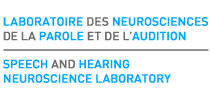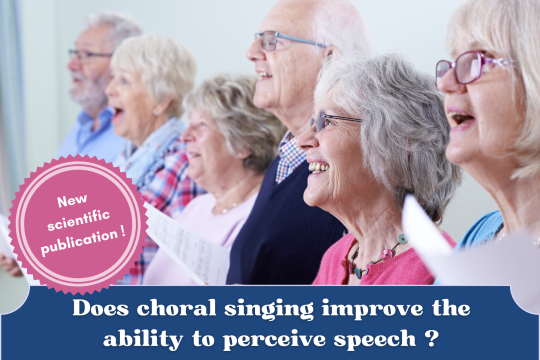The brain is a remarkably complex structure, which evolves throughout life, following experiences, positive and negative, and learning, a phenomenon called “ experience-dependent brain plasticity”. The types of experiences that include amateur-level musical activities, such as singing, playing an instrument, but also learning a second language, acting and all other activities that have a strong vocal or auditory component. These activities alter brain structure and function and can have positive effects on communication and cognition. The key idea here is that these changes can alter aging trajectories, leading to more positive aging. These activities therefore have significant potential for prevention and rehabilitation. Yet, we still know too little about their impact on the brain and on communication to be able to use them effectively as a prevention or a treatment strategy. It is therefore imperative to study how these activities can affect the adult and aged brain.
In addition to focusing on activity-induced plasticity, we are also interested in plasticity induced by non-invasive brain stimulation. We use a method called MRI-guided transcranial magnetic stimulation (TMS) to temporarily modify brain activity and study its impact on the ability to understand or produce language in healthy people and in people with cognitive disorders. We measure the effects of TMS using behavioral tests as well as TMS-compatible electroencephalography (EEG), which allows us to visualize and measure the impact of stimulation on brain activity during and immediately after TMS.

Selected relevant publications on this topic:
- Marczyk, A., Roy, J-P., Vaillancourt, J. Tremblay, P. (2022) Vowel articulation in aging singers and non-singers. Speech Communications.
- Perron, M., Vaillancourt, J., Tremblay, P. (2022) Amateur singing benefits speech perception in aging under certain conditions of practice: behavioural and neurobiological mechanisms. BSF
- Perron, M., Theaud, G., Descoteaux, M, *Tremblay, P. (2021) The fronto-temporal organization of the arcuate fasciculus and its relationship with speech perception in young and older amateur singers and non-singers. Human Brain Mapping
- Brisson, V., Tremblay, P. (2021) Improving speech perception in noise in young and older adults using transcranial magnetic stimulation. B&L, 222.
- Zumbansen, A., Tremblay, P. (2018) Music-based interventions for aphasia could act through a motor-speech mechanism: a systematic review and casecontrol analysis of published individual participant data. Aphasiology 33:4, pages 379-381.
- Tremblay, P., & Veilleux, J.-A. (2018). The impact of singing on human communication in aging: from protection to rehabilitation. In R. Heydon, D. Fancourt, & A. Cohen (Eds.), Routledge Companion to Interdisciplinary Studies in Singing. Volume III Well-being.: Taylor & Francis Books.
- Lortie, C., Rivard, J., Thibeault, M., Tremblay, P. (2016) The moderating effect of frequent singing on voice aging. Journal of Voice. Janvier; 31(1), p.112.e1-112.e12.





